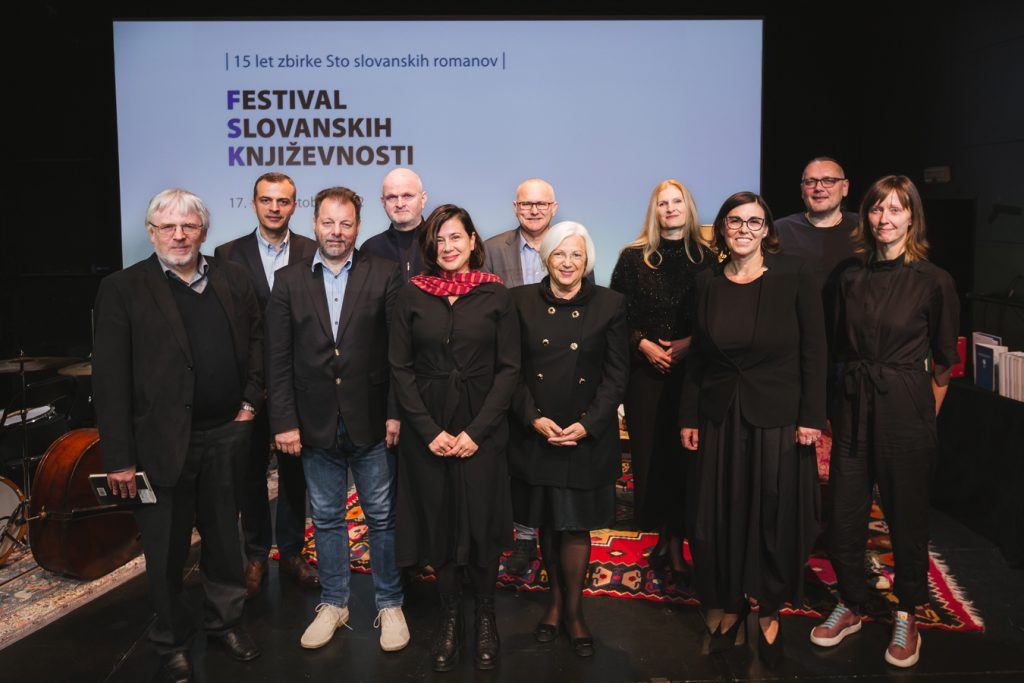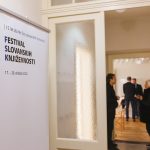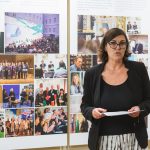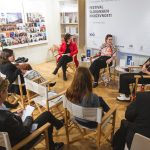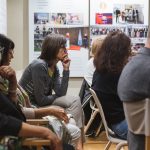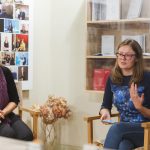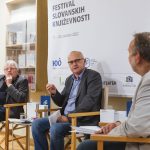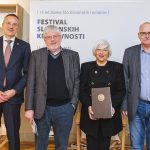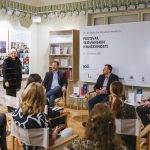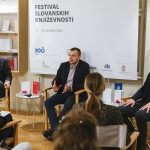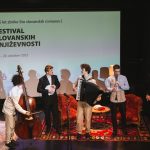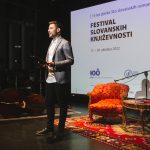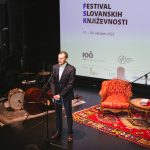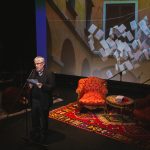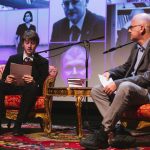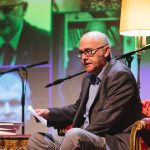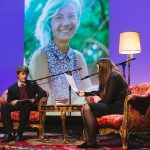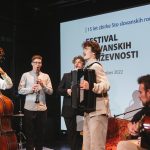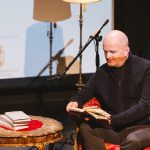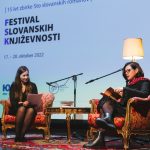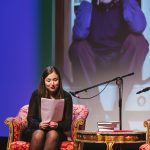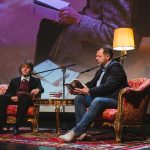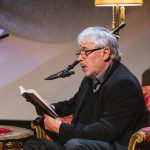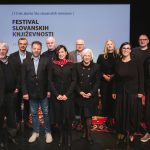The Forum of Slavic Cultures, in cooperation with partners, organised the Festival of Slavic Literatures. The first edition of the Festival, which will become a regular literary event on the cultural calendar in the years to come, was dedicated to the 15th anniversary of the 100 Slavic Novels collection. The anniversary was held under the honourable patronage of the President of the Republic of Slovenia, Borut Pahor.
The main guests of the festival were writers whose works are included in the national lists of the collection: the Montenegrin writer Dragan Radulović, Aleksandar Gatalica from Serbia, the Croatian author Olja Savičević Ivančević and their Slovenian colleagues Suzana Tratnik, Jani Virk and Vlado Žabot. The authors discussed their literature, their experiences methods as well as their books from the 100 Slavic Novels collection at three discussion evenings held at the headquarters of the FSK, in Hribar’s Villa Zlatica, which is also developing into a new literary venue in Ljubljana.
The Slovak film The Camp of Fallen Women, directed by Lac Halama and based on the novel of the same name by Anton Baláž was shown at the festival. The novel was published in Slovenian translation last year in 100 Slavic Novels. The film and the book were discussed by the book’s translator, Diana Pungeršič, and Hana Lacova.
The festival events also moved from the capital to Celje, where Dragan Radulović talked to Zoran Pevec, Vice-President of the Slovene Writers’ Association, at the Celje Central Library, and the discussion was attended by students from three Celje grammar schools.
“The festival brings a new dimension to the mission of the collection – to place the authors of contemporary Slavic literature side by side and to bring their works into the arms of readers – it enables a lively mutual acquaintance, a direct communication,” says the author
Andreja Rihter, Director of the Forum of Slavic Cultures and initiator of the 100 Slavic Novels collection, said at the closing of the Festival of Slavic Literatures, a literary and musical event at the Mini teater in Ljubljana. “This collection has opened up a common Slavic space of exchanges of views, experiences, socialisation, self-knowledge, moral self-image, identity, different creative approaches, in short, artistic communication, which in the European tradition is the foundation of the cultivation of humanity. It is on the basis of cultivated humanity that true alliances and reciprocity can be conceived and established.”
Th excerpts from the works of the guests of the festival were read by actors Nika Korenjak, Tadej Pišek and Timotej Novaković, and the music was provided by the Gugutke group, which plays folk music from Slovenia and South-Eastern Europe.

